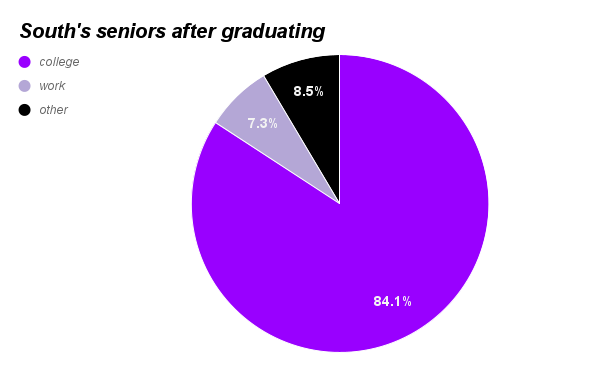Cheating is an issue most schools will run into and can be hard to control. South students have experienced being cheated off of while teachers and staff are working to avoid this problem.
Most would imagine cheating as something that only occurs during a test, but this is not true. It can also include the copying of homework and plagiarism.
Sophomore Matt Arnold believes that this is true because “you’re using someone else’s answers for your own benefit,” Arnold said. This applies to both tests and homework.
Science teacher Luke Sheehan summarized cheating as “knowingly doing something to get answers from somebody else.” Sheehan will go to certain measures in order to decrease the chances of his own students from copying each other.
“One thing I do during tests is that I move my desks around so that people are more spread out, [which] cuts down on people being really close and looking at each other’s answers,” Sheehan said.
Senior Sujin Woo was directly affected by a cheater while taking her PSAT exam. “It made me [feel] ticked off [because] I’m working hard to get these good scores,” Woo said.
Conditions of the PSAT exam included students being crowded into the cafeteria, sitting within close quarters and having little means of protecting their answers.
“Yeah I feel like there are things the school can do,” Woo said, “like maybe taking a few classrooms that are empty or computer labs, so it minimizes the chances of cheating.”
There is no set policy at South on the consequences for cheating, so it is up to each teacher to decide what they prefer. Consequences such as failing the test and receiving a referral are known to be used as punishments.
Math teacher Janis Berzins gives this piece of advice to his students in order to dissuade them from cheating: “I believe you are better than a piece of paper [and] you are better than a test grade. So for your own sake, do not.”
Berzins believes in “encouraging students as much as possible and would encourage them to work hard to get a C rather than cheat and get an A .”

